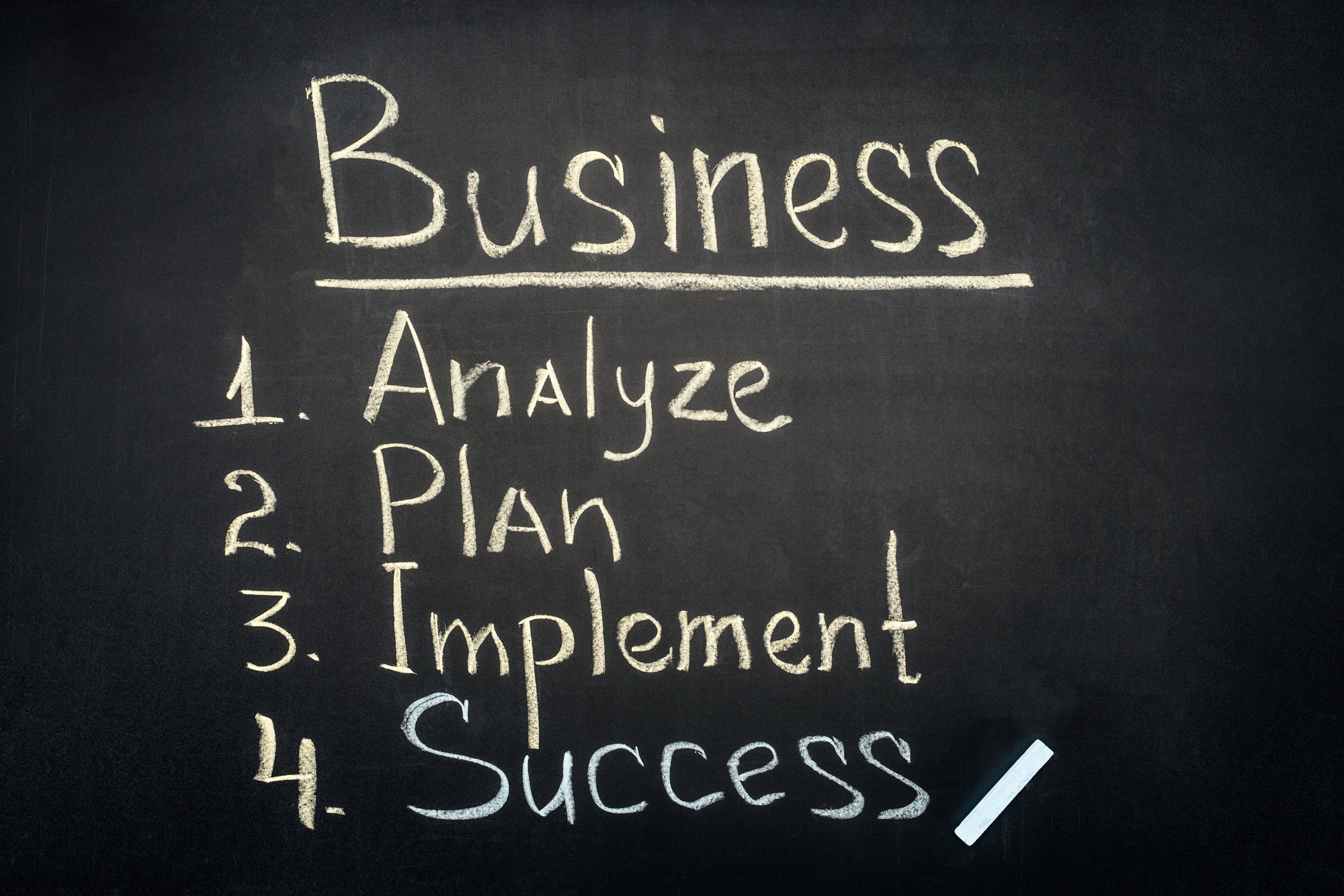Key Takeaways

- Preparation is Crucial: Organize financial documents and assess your business’s value to attract serious buyers and set a competitive price.
- Enhance Appeal: Improve operational efficiency and aesthetics to make your business more attractive to potential buyers.
- Effective Marketing: Develop a robust marketing strategy using both online platforms and traditional advertising to showcase your business’s strengths.
- Professional Guidance: Engaging experts like business brokers and legal advisors can streamline the selling process, ensuring compliance and effective negotiations.
- Screen Buyers: Vet potential buyers based on financial capability and experience to facilitate productive negotiations.
- Smooth Transition: Create a comprehensive transition plan and provide support to the new owner to ensure continuity and success post-sale.
Selling a business can feel overwhelming, but it doesn’t have to be. Whether you’re looking to retire, pursue new ventures, or simply cash out, understanding the process is key to achieving a successful sale. With the right strategies in place, you can maximize your business’s value and find the right buyer.
In this guide, you’ll uncover essential steps to navigate the selling process smoothly. From preparing your business for sale to negotiating with potential buyers, each step is crucial in ensuring you get the best deal. Let’s dive in and equip you with the knowledge you need to make informed decisions as you embark on this significant journey.
How to Sell a Business

Selling a business involves several key steps that ensure a smooth transition and maximize value. Follow these essential steps:
- Prepare Financial Records
Organize your financial statements, tax returns, and profit-and-loss statements for at least three years. Demonstrating financial health attracts serious buyers.
- Assess Business Value
Conduct a professional business valuation to determine your small business’s worth. This analysis helps set a competitive price and makes negotiations more straightforward.
- Enhance Business Appeal
Improve operational efficiency, customer relationships, and property condition. Enhancing aesthetics and functionality aids in attracting potential buyers.
- Market the Business
Create a marketing strategy to reach prospective buyers. Leverage online platforms and industry connections to showcase your business effectively.
- Engage Professionals
Consider hiring a business broker or M&A advisor to guide the process. Professionals possess expertise in negotiations and legal requirements that protect your interests.
- Screen Potential Buyers
Evaluate buyers based on their financial capability and experience. Engaging serious buyers ensures that discussions remain productive and relevant.
- Negotiate Terms
Clearly outline the terms of sale, including price, payment structure, transition plans, and any contingencies. Strong negotiation skills can secure favorable terms.
- Finalize Legal Documentation
Prepare necessary legal documents with the help of an attorney. Ensure compliance with local laws and regulations during the sales process.
- Facilitate Transition
Provide training and support to the new owner. Smooth transitions maintain business continuity and enhance the likelihood of a successful sale.
By following these steps, you effectively navigate the intricate process of selling your small business, making informed decisions throughout.
Preparing to Sell Your Business

Preparing to sell your business involves several critical steps to ensure a successful transaction.
Evaluating Your Business Value
Determine your small business’s worth by conducting a thorough valuation. Use metrics such as revenue, profit margins, and market conditions to finalize a competitive price. Consider hiring a professional appraiser to enhance credibility and accuracy.
Gathering Financial Documents
Compile essential financial documents that display your small business’s health over the last three to five years. Include tax returns, profit and loss statements, and cash flow statements. Organizing this data builds confidence with potential buyers and supports your valuation.
Organizing Business Records
Maintain well-organized business records that include contracts, employee agreements, and operational procedures. Clear documentation not only simplifies the selling process but also showcases your small business’s efficiency and professionalism to prospective buyers.
Finding the Right Buyer

Finding the right buyer for your small business involves understanding the different types of buyers and tailoring your approach to attract them.
Types of Buyers
- Individual Buyers: These buyers typically comprise seasoned entrepreneurs or former corporate executives. Individual buyers focus on small businesses that allow for hands-on ownership. Motivations include personal gains and a commitment to maintaining the company’s reputation. They prioritize caring for employees and driving growth within the organization.
- Strategic Buyers: Established companies represent strategic buyers. They seek specific goals like market expansion or reducing competition. Strategic buyers are interested in acquiring small businesses that can complement their existing operations or provide a competitive edge. Understanding their criteria enhances your ability to present your business as an attractive option.
Marketing Your Business for Sale

Effective marketing plays a crucial role in attracting potential buyers for your small business. Follow these steps to market your business successfully.
Preparing Your Marketing Materials
- Compile detailed financial records. Accurate and up-to-date financial statements build trust with interested buyers. Include income statements, balance sheets, and cash flow statements from the past three to five years.
- Create a comprehensive business profile. Highlight your unique selling points, including steady revenue and growth potential. Showcase customer testimonials that reflect satisfaction and loyalty.
Identifying Key Selling Points
- Focus on profitability and competitive advantages. Emphasize aspects like proprietary technology, established processes, or a unique market position. These elements attract buyers looking for strong investment potential.
- Highlight your customer base. Provide data on customer retention rates, demographic information, and market reach. This insight demonstrates the business’s stability and attractiveness.
Determining the Best Marketing Channels
- Utilize online platforms. Websites like BizBuySell or BusinessBroker.net specialize in business sales, connecting you with a broad audience. Social media channels like LinkedIn also enhance visibility within professional circles.
- Consider traditional advertising. Local newspapers or industry magazines can effectively reach potential buyers interested in your specific sector.
Engaging Professionals
- Leverage the expertise of business brokers. Brokers can facilitate marketing strategies suited specifically for your business type, ensuring targeted outreach.
- Hire a professional photographer. High-quality images of your business location or products can enhance online listings and promotional materials.
These structured steps ensure confident marketing of your small business, ultimately attracting the right buyers and maximizing your sale potential.
Negotiating the Sale

Effective negotiation plays a vital role in selling a business. Focus on key aspects that influence successful transactions to ensure a favorable outcome.
Setting the Right Price
Establish a competitive asking price based on thorough valuation metrics, including revenue, profit margins, and market conditions. Conduct extensive research about comparable business sales to identify market norms. Align price expectations with the value perceived by potential buyers. A well-researched and justified price instills confidence and encourages buyer interest.
Structuring the Deal
Create a deal structure that accommodates your needs while appealing to buyers. Consider payment terms, contingencies, and potential post-sale involvement. Clearly outline whether the sale involves an outright purchase or an installment plan. Transparency regarding financing options, such as seller financing, can facilitate negotiations. Ensure that both parties find the structure beneficial to foster a cooperative atmosphere.
Drafting the Sales Agreement
Draft a comprehensive sales agreement that reflects the negotiated terms. Include critical elements such as purchase price, payment schedule, and representations about the business. Outline any contingencies required for finalizing the sale, such as financial verification or lease transfers. Collaborate with a qualified attorney to ensure the agreement adheres to legal standards and minimizes the risk of disputes.
Closing the Sale

The closing phase comprises several critical steps, directly impacting the outcome of your small business sale process.
Finalizing Due Diligence
Complete due diligence involves an exhaustive review of financial, legal, and operational aspects. Verifying financial records ensures accuracy and builds buyer confidence. Document all assets, liabilities, contracts, and employee agreements from the last three to five years. Confirm compliance with local regulations and licensing requirements. Address potential issues proactively to foster trust. Engaging a legal advisor remains essential to navigate potential pitfalls during this phase and ensure compliance with regulations.
Transfer of Ownership Process
Facilitate a seamless transfer for the new owner. Coordinate with legal teams to draft and finalize essential documents, including sales agreements and closing statements. Ensure that all assets transfer seamlessly, including business licenses and operational accounts. Provide comprehensive documentation to assist the new owner in understanding the business operations. Schedule a handover meeting to introduce key staff and outline day-to-day processes. This approach enhances the new owner’s transition and promotes continued success for the small business.
Post-Sale Considerations

Post-sale considerations play a critical role in ensuring a successful transition for your small business. Addressing key aspects effectively can streamline processes and optimize outcomes.
Preparing for Transition
Prepare for a smooth transition by developing a comprehensive transition plan. Establish a timeline that outlines critical tasks such as transferring licenses, notifying suppliers, and updating customer information. Schedule meetings with key employees to discuss their roles during the transition and ensure they understand operational changes. Provide training materials to facilitate knowledge transfer and maintain continuity in business operations. Communicate openly with the new owner to address any concerns and foster trust throughout the transition period.
Tax Implications
Evaluate tax implications that arise from selling your small business. Consult with a tax professional to understand capital gains taxes and any potential deductions related to the sale. Determine how the sale structure—asset purchase versus stock purchase—affects your tax obligations. Plan for the timing of payments and how they influence your tax situation in the years following the sale. Maintaining organized financial records will simplify tax reporting and compliance post-sale, ensuring you fulfill all obligations efficiently.
Troubleshooting Common Issues

Selling a small business can present challenges that require strategic solutions. Addressing issues promptly enhances the selling process and builds buyer confidence.
Addressing Valuation Concerns
Determine accurate business valuation by using multiple methods such as EBITDA multiples or discounted cash flow analysis. Prepare detailed financial records that showcase revenue trends and profitability. Document relevant metrics from the last three to five years to provide potential buyers with insights into performance and trends. Seek professional valuation services if internal methods seem insufficient. Share a clear rationale for the business’s price to engage prospective buyers in constructive discussions about value and help overcome skepticism.
Dealing with Buyer Financing Problems
Confirm that buyers demonstrate financial capability during initial discussions. Request proof of funds or pre-approval letters to gauge their ability to follow through. Structure deal terms that accommodate diverse financing options, such as seller financing, to attract a broader range of buyers. Maintain open communication with buyers and their financial institutions to resolve any financing hurdles quickly. Providing flexibility in financing can keep the transaction on track and prevent delays or cancellations.
Conclusion

Selling your business is a significant milestone that requires careful planning and strategic execution. By following the outlined steps and engaging the right professionals, you can navigate the complexities of this process with confidence. Remember to focus on preparing your business for sale and understanding your potential buyers’ needs.
Effective negotiation and a seamless transition are crucial for maximizing your business’s value and ensuring its future success. With the right approach and thorough preparation, you can achieve a successful sale that meets your goals and sets the stage for your next venture. Embrace the journey ahead with clarity and purpose.
Frequently Asked Questions

What are the key steps to prepare my business for sale?
Preparing your business for sale involves several key steps: gather financial records from the past three to five years, conduct a professional valuation to set an appropriate price, enhance your business’s appeal through improvements, and create a strong marketing strategy to attract buyers.
How can I determine the right asking price for my business?
Set the right asking price by conducting a thorough valuation based on factors like revenue, profit margins, market conditions, and industry comparisons. Engage a professional appraiser or business broker for expert insight to ensure your price is competitive yet reflective of your business’s true value.
Should I hire professionals when selling my business?
Yes, hiring professionals like business brokers, attorneys, and accountants can significantly streamline the selling process. They will provide expert guidance on valuations, legal documentation, marketing strategies, and negotiations, ultimately helping you achieve a better sale outcome.
How do I find the right buyer for my business?
Identify the right buyer by understanding buyer types, such as individual entrepreneurs or strategic buyers. Tailor your marketing approach to highlight what specific buyers value, like growth potential, operational efficiency, and employee welfare, to attract suitable candidates.
What marketing strategies should I implement to sell my business?
Develop a robust marketing strategy that includes creating detailed marketing materials like financial records and a compelling business profile. Utilize both online platforms and traditional advertising, highlighting your business’s unique selling points and customer testimonials to reach a wider audience.
How important is the negotiation phase in selling a business?
The negotiation phase is crucial, as it affects the sale’s outcome. Proper negotiations can lead to better prices and terms. Focus on setting a fair price, structuring the deal to meet both parties’ needs, and drafting a clear sales agreement that reflects the agreement reached.
What should I include in the due diligence process?
During due diligence, ensure thorough reviews of financial, legal, and operational aspects of your business. Document all assets, liabilities, contracts, and employee agreements to build buyer confidence and ensure compliance with local regulations before finalizing the sale.
How can I ensure a smooth transition for the new owner?
Facilitate a seamless transition by preparing all essential documents for the new owner, coordinating with legal teams, and scheduling a handover meeting to introduce key staff. Maintain open communication and provide operational documentation to assist the new owner.
What post-sale considerations should I keep in mind?
Post-sale considerations include developing a comprehensive transition plan, preparing key employees for their new roles, and evaluating any tax implications related to the sale. Consult with a tax professional to understand capital gains taxes and how the sale structure may affect your tax obligations.
What common issues might arise during the selling process?
Common issues that may arise include valuation concerns and buyers’ financial capability. Address these by using multiple valuation methods, preparing detailed financial records, and confirming buyers’ financial capabilities early in the process to ensure a smoother transaction.
Image Via Envato: chartchaik1, DC_Studio, LightFieldStudios, thichas, rfaizal707, AtlasComposer, Freedomtumz, nenetus, Rawpixel, paegagz, wirestock



